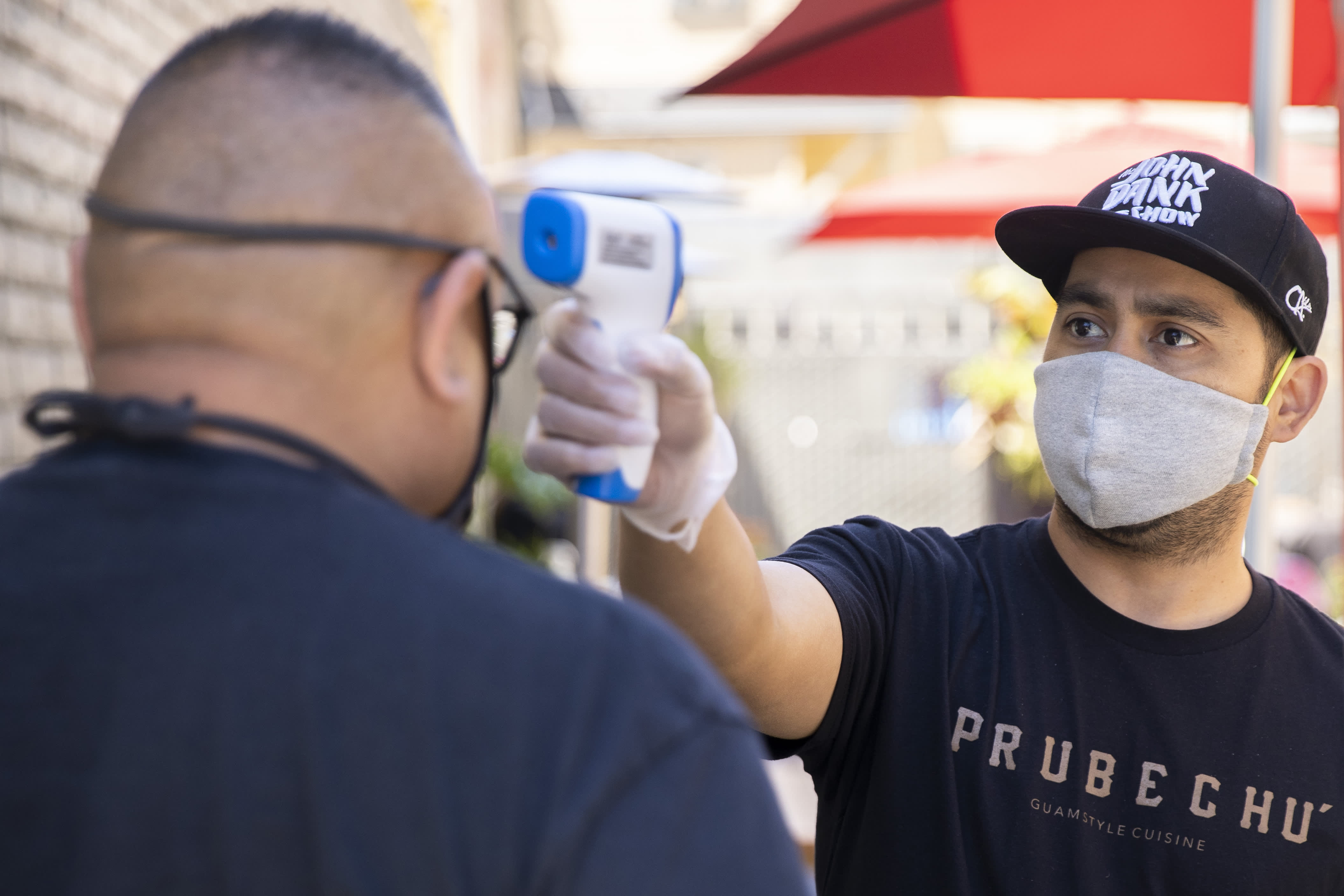Dr. Scott Gottlieb: U.S. is in the 7th inning of the pandemic but the ‘hardest part’ is likely ahead

Dr. Scott Gottlieb warned on Monday that the U.S. is likely to face even bigger challenges from the coronavirus pandemic as cases rise this fall without widely available treatments or a vaccine.
“We’re going to get through it. We’re probably in the 7th inning of the acute phase of this pandemic right now, but the hardest part is probably ahead,” Gottlieb said on CNBC’s “Squawk Box.”
The former U.S. Food and Drug Administration commissioner pointed to the increasing number of new daily Covid-19 infections in America, which on Friday saw its highest count since late July. Hospitalizations for Covid are also trending upward, Gottlieb noted on Twitter.
“It looks like we’re entering a pretty difficult period right now,” said Gottlieb, who led the FDA in the Trump administration from May 2017 to April 2019. “The cases are accelerating around the country. There’s really no backstop here.”
With infection surges in the U.S. and Europe, the number of confirmed coronavirus cases around the world topped 40 million on Monday, according to data from Johns Hopkins University.
The U.S. is unlikely to implement a national shutdown that mirrors the widespread stay-at-home orders put in place by governors in March and April, Gottlieb contended. He also said antibody treatments like the one President Donald Trump received for his Covid-19 illness are likely to be useful in fighting the epidemic but will not be available widely enough to end the U.S. outbreak.
A vaccine to prevent Covid-19 also will not be ready soon enough to limit the current rise of infections, said Gottlieb, who sits on the board of Pfizer, which is developing a coronavirus vaccine. “The vaccine really isn’t going to start to have its impact until 2021,” he said.
Gottlieb, who had expressed hope in July that the worst of the U.S. epidemic would “be over by January,” emphasized that it takes time for a vaccine’s preventative qualities to take effect. It will take months from the time a company applies for emergency use authorization, should it be granted, for recipients of the vaccine to have coronavirus immunity, Gottlieb said.
In a “best-case scenario,” Gottlieb said companies whose vaccines prove to be safe and effective in large-scale clinical trials could apply for emergency use with the FDA in late November. From there, it will take the regulatory agency two to four weeks to review the data and make a decision on granting emergency approval, he said.
“If the FDA authorizes those vaccines, it’s going to be for a very select population: People who are elderly and high risk. It’s going to take at least two to four weeks to vaccinate that population, and then they’re going to have to wait three to four weeks to get a second dose,” he said.
For Pfizer’s vaccine, the second shot is administered after three weeks. For Moderna, another company in late-stage vaccine trials, it is given after four weeks. From there, Gottlieb said it will still take another “few weeks” until recipients develop a full-fledged immune response.
“We’re looking at scenario where the first tranche of people to get vaccinated … aren’t going to have protective immunity from the vaccine probably until February or March,” Gottlieb said. “We’re going to have to get through this next wave without the benefit of protective immunity from a vaccine.”
Disclosure: Scott Gottlieb is a CNBC contributor and is a member of the boards of Pfizer, genetic testing start-up Tempus and biotech company Illumina. Pfizer has a manufacturing agreement with Gilead for remdesivir. Gottlieb also serves as co-chair of Norwegian Cruise Line Holdings′ and Royal Caribbean‘s “Healthy Sail Panel.”




